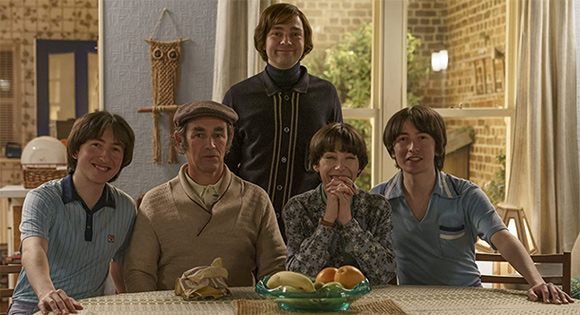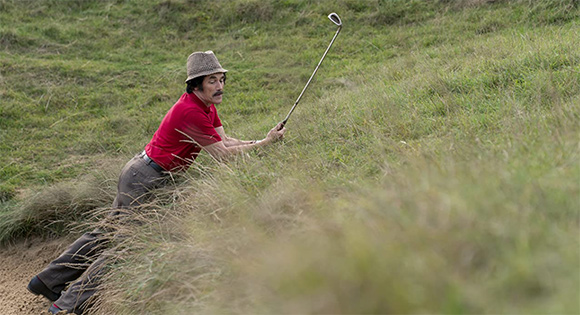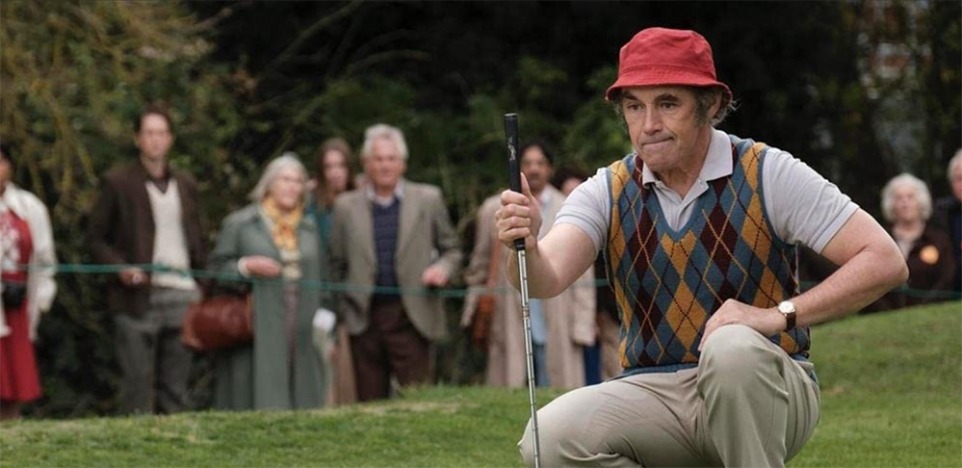“We fear struggle and we discount failure. But in the end it may only be struggle and failure that make us what we are.”
— Joan Chittister in Gospel Days
Everybody wants to be a winner. Whether playing games at school, competing in relationships, or aiming for success at work, our false self yearns to be seen as special, to stand out in victory, and to be heralded by the media. Yet we’re all failures in one way or another — at least, the best of us are.
Mark Rylance, who won an Oscar for his performance in Steven Spielberg’s Bridge of Spies, plays the golfer Maurice Flitcroft in this British biographical comedy based on a true story. He works as a shipyard crane operator, but when it becomes clear his job will be axed during hard economic times, he hitches his dreams to winning the 1976 British Open golf tournament. His wife Jean (Sally Hawkins) and his disco-dancing twin sons (Christian and Jonas Lees) support him. His oldest son Michael (Jake Davies), an up-and-coming manager at the shipyard, is embarrassed by his father’s antics.

Maurice, who has never played golf before, begins practicing in earnest. Filling out the application form for the Open, he decides to declare himself a “professional” since amateurs need to have a handicap. During the opening round, he does his best and ends up with the highest score in Open history – which means he’s played the worst game ever! But much to his surprise, the press and the public embrace his participation. This underdog, it turns out, is much more appealing than the members of the golf establishment who greet him with scornful words and force him off the course. But Maurice is not done with golf yet!

Besides offering plenty of laughs, The Phantom of the Open delivers a ethically provocative portrait of the spiritual way of failure. In her book of the same title, Mariana Caplan writes:
“The process of being humbled by my failures has left me raw and open, and thus measurably more available to life and to the ones I love. As someone who has hidden behind a stream of successes, my failure has made me more real and more connected, and has finally demanded that I insist upon my separation from people. These are only a few fruits of the early harvest, fruits that are available to anybody who walks the Way of Failure.”
